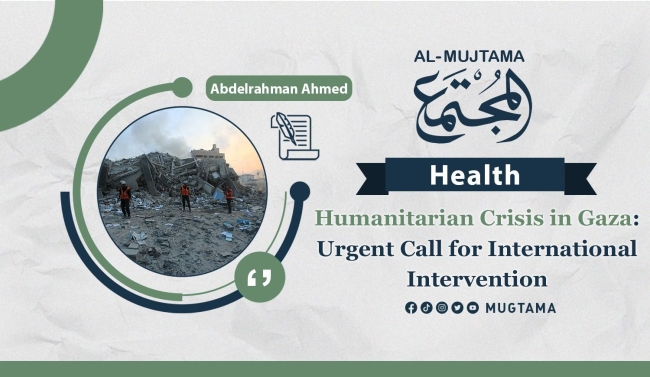Humanitarian Crisis in Gaza: The Healthcare System Collapse
The Gaza Strip, a densely populated and besieged territory, is currently facing a severe humanitarian crisis that has pushed its healthcare system to the brink of collapse. The situation has been exacerbated by ongoing Israeli bombardment, resulting in widespread displacement, a critical shortage of medical supplies, and a dire lack of basic necessities. The United Nations, aid groups, and the World Health Organization (WHO) have sounded alarm bells, urging the international community to take immediate action. This essay delves into the multifaceted aspects of the crisis, examining the collapse of the healthcare system, the siege on hospitals, the displacement of the population, and the urgent need for international intervention.
The Healthcare System Collapse:
Lynn Hastings, the UN Humanitarian Coordinator for the Occupied Palestinian Territory, has unequivocally stated that the healthcare system in Gaza has collapsed. The territory, home to 2.3 million people, is facing a "textbook formula for epidemics and a public health disaster." This collapse is manifested in the long lines people must endure just to access basic facilities like toilets. The unsanitary conditions prevailing in Gaza are a breeding ground for diseases, leading to an impending health crisis of unprecedented proportions.
Population Displacement and Israeli Bombardment:
The crisis has forced nearly half of Gaza's population to seek refuge in Rafah, in the southern part of the territory, as a means to escape the relentless Israeli bombardment. The southern Gaza Strip is reeling under heavy attacks, with UN officials cautioning that no place in Gaza is safe. Hospitals, including Al-Awda and Kamal Adwan hospitals in northern Gaza, are under siege, exacerbating the already dire healthcare situation.
Hospital Siege and Medical Staff Detention:
Reports indicate that Israeli forces have laid siege to hospitals, with Al-Awda Hospital remaining under military lockdown. Kamal Adwan Hospital's medical staff, including the director, Ahmed al-Kahlout, have been detained by Israeli forces. Civilians seeking shelter in hospitals have faced violence, with orders to evacuate followed by gunfire. This assault on medical facilities not only endangers the lives of patients but also compromises the ability of healthcare providers to offer critical abssistance.
Limited Hospital Functionality and Humanitarian Appeals:
The few hospitals that are still operational are overwhelmed, unable to cope with the massive number of victims. Medical staff are faced with heart-wrenching decisions about prioritizing patients due to the overwhelming demand for care. The World Health Organization reports that only 11 out of Gaza's 36 hospitals are partially functional. Palestinian authorities have issued urgent appeals to international organizations for the delivery of fuel and medical supplies to these struggling hospitals, highlighting the critical need for immediate humanitarian intervention.
Disease Outbreaks and WHO's Assessment:
The WHO has reported a sharp uptick in acute respiratory infections, diarrhea, lice, scabies, and other fast-spreading diseases. The dire conditions, coupled with the limited functionality of the healthcare system, create a perfect storm for widespread disease outbreaks. The WHO representative on the occupied Palestinian territory, Richard Peeperkorn, emphasizes the commitment of the organization to assist the population but notes that as hostilities increase, aid falls short of meeting the pressing needs. The humanitarian support system is described as being on the verge of collapse.
Use of Starvation as a Weapon and International Inaction:
The Palestinian Foreign Minister has condemned Israel for using starvation as a deliberate weapon of war against the people in Gaza. This reprehensible tactic not only violates international humanitarian law but also adds another layer of suffering to an already devastated population. The international community's inaction towards the situation in Gaza is deplored, with Palestinian diplomats highlighting the denial of the most basic rights to the Palestinian people.
Conclusion:
The humanitarian crisis in Gaza demands urgent and decisive international intervention. The collapse of the healthcare system, siege on hospitals, displacement of the population, and the use of starvation as a weapon constitute a dire situation that cannot be ignored. The international community must prioritize the protection of civilians, ensure the delivery of essential supplies, and work towards a sustainable resolution to the conflict. Time is of the essence, and failure to act promptly risks the further deterioration of an already catastrophic situation. The people of Gaza cannot wait any longer for the help they so desperately need.
Source: Pars Today


